QNetworks
Thursday, 28 and Friday, 29 September 2023
The Quantum Communications Hub international workshop on recent advances in quantum networking (QNetworks) will return on 28-29 September 2023 with a new programme of speakers reporting on the latest breakthroughs in the field.
QNetworks is a two-day annual workshop bringing together researchers from the UK’s Quantum Communications Hub programme and similar initiatives worldwide as well as industry to discuss technological challenges and solutions for creating the next generation of quantum communication networks.
This year the particular focus will be on challenges and possible solutions for building a quantum network that can support the rollout of a future quantum internet with applications beyond point-to-point security such as distributed quantum computing.
The event will include sessions on:
- The perspective from the industry
- International quantum networking initiatives
- quantum communications in space, and others.
To find out more and register, visit the event website or contact the organisers via email to enquiries@quantumcommshub.net.
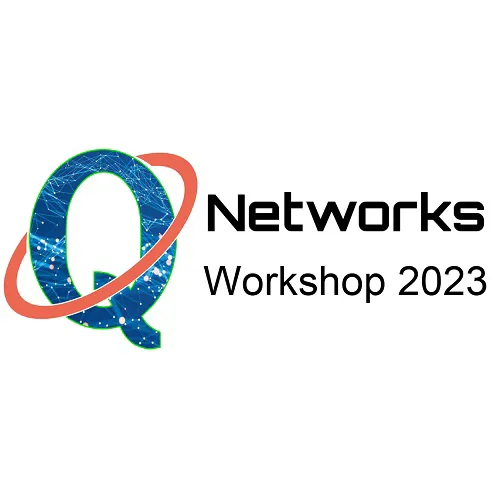
What are the Key Performance Indicators for Optical Technologies in Space and High-Flying Platform Communications?
Sunday 1 October: 10.00-12.30
Optical communication technologies are finding widespread applications in space and aerial systems. Optical-based solutions can provide large bandwidth, low energy consumption and quantum-based security schemes. Extending optical fibre network connectivity to non-terrestrial ones, such as satellite or high altitude platforms (HAPs), would greatly increase coverage and the number of use cases. However, it is important to investigate how to overcome potential impairments in such integrated networks, e.g., atmospheric attenuations, and pointing errors.
This workshop is structured in three sessions: i) presentation from subject matter experts, ii) open discussion with the audience, and iii) KPI metrics formulation. The objective is to formulate and reach a consensus on KPI metrics through the discussion of technology status, integration of optical and space technologies, new use cases, and benefits for 6G and beyond communication.
The workshop is co-sponsored by the IEEE Future Networks Technical Community (FNTC) in the framework of the International Network Generations Roadmap (INGR) Optics and Satellite Working Groups collaboration activity.
Co-organisers:
- Murat Yuksel, University of Central Florida, USA
Joan Bas, CTTC, Spain
Speakers:
- Vincent Chan, MIT
- Jose Ignacio Latorre, Centre for Quantum Technologies Singapore
- Christian Fuchs, DLR
- Morio Toyoshima, NICT
- Alexandre Wodarzyk, EAGLE-1 mission from SES
- Baris Erkmen, Hedron, formerly at Google X
- Mohammed-Slim Alouini, KAUST
- Bryan S. Robinson, MIT Lincoln Lab
- Guray Acar, European Space Agency
- Junichi Kani, NTT
MOPA Optics for Wireless
Sunday, 1 October: 14.00 – 16.30
MOPA is a multi-lateral industry-driven initiative, created to provide a common industry view of the relevant optical solutions for 5G mobile transport, to facilitate network evolution for mobile operators and mobile transport network equipment manufacturers.
The focus of MOPA is describing all relevant high-level requirements for optical solutions for 5G mobile transport. Examples of topics covered in the MOPA Technical paper 2.1 are: 50 Gb/s WDM 15 km systems for fronthaul, remote optical module management, impact of optical pluggables on synchronization, and so on. Recently, leading mobile operators joined the newly formed MOPA operator advisory board.
The workshop will be organised in two panel sessions. In the first sessions, four mobile operators will tell system and pluggable vendors what technologies they need to meet their requirements and challenges in the evolution of their networks. In the second session, four vendors will tell us what technologies they are developing for meeting the 5G requirements, discussing the challenges in meeting cost and performance at the same time.
Co-organisers:
- Fabio Cavaliere, Ericsson, Italy
- Stefan Dahlfort, Ericsson, USA
Speakers:
- Operator Panel
- Hongseok Shin, SKT
- Albert Rafel, BT
- Mark Watts, Verizon
- Jun-ichi Kani, NTT
Vendor panel:
- Francois Fredricx, Nokia
- Antonio Tartaglia, Ericsson
- Ken Cockerham, Coherent
- Kenneth Jackson, Sumitomo
F5G Optical Network Technologies towards 2025 and 2030 - What, why and how?
Sunday, 1 October: 14.00 – 16.30
In 2020, the European Telecommunications Standards Institute (ETSI) officially started the standardisation of the 5th-Generation Fixed Network (F5G) with the vision of fiber-to-everywhere, and has completed its first release of specifications, including architecture, quality of experience, end-to-end (E2E) management, use cases, and security. In 2022, ETSI released the F5G-Advanced white paper to describe new requirements in home, business, and industrial scenarios and the future evolution of the fixed telecommunications network.
Two categories of key applications or industry trends are identified as key drivers for F5G-Advanced. One is oriented towards services and applications: ultra-high-definition immersive experience services, enterprise and industry digitalisation and cloudification, 4K/8K and Metaverse. The other is directed towards network transformation: Digitisation of network operations, ubiquitous fiber infrastructure, smart infrastructures, Green technologies and carbon emission reduction.
This workshop brings together experts at ECOC 2023 to inform and discuss the topics to be addressed by F5G-Advanced towards 2025 and 2030.
Co-organisers:
- Xiang Liu, Huawei Hong Kong Research Center, China
- Philippe Chanclou, Orange, France
Speakers:
- Green and Digital Transformation Enabled by F5G - Luca Pesando, ETSI ISG-F5G
- Fiber-to-the-Room (FTTR) Advances - Frank Effenberger, Futurewei, USA
- Fixed-Mobile Convergence in F5G-Advanced - Gaël Simon, Orange, France
- F5G Proof-of-Concept Demonstrations on Low-Latency Industrial Applications - Behnam Shariati, HHI, Germany
- Opportunities and Challenges for Optical Sensing in F5G - Neil Parkin, British Telecom, UK
- Advances in B400G Optical Transport Network Technologies and Standards - Tom Huber, Nokia, USA
- Optimal Support of IP, Optical, and Computing Functionalities - Loudon Blair, Ciena, UK
- Autonomous E2E-Optimized Network Management Technologies - Johan Baeck, Infinera, USA
Hack Your Research! Tools and Tricks for today’s telecommunications techies (formerly Lab Automation Hackathon)
Sunday, 1 October: 6 pm – 8 pm
Come and learn the most powerful techniques expert researchers and professionals use to enhance their productivity and make their lives easier. Join us and take this chance to upgrade your work methods and discuss while enjoying lots of food and drinks in an informal, relaxed, and fun way.
Our everyday research is most fun and productive when we concentrate on creative problem-solving. Good news: for almost all other tasks, there are tools available for you to make your engineering life easier.
Many software packages written by the large community allow you to quickly and easily automate menial tasks, build graphical user interfaces, visualise data and much more! This event aims to bring awareness of these packages by hosting multiple interactive demos of mostly free and open-source software built in easy-to-learn languages such as Python. The demos are set up around informal discussion tables with plenty of time for inspiring discussion and questions.
This event is an opportunity to learn how to tap into and use the available public resources, and to learn about the newest tools developed by PhD students and researchers alike. From students to highly experienced experts, everybody is welcome to learn and share ways to boost their research. Benefit and learn from the trial-and-error of others and get a kickstart in productivity!
Organisers:
- Henrique Buglia, University College London, United Kingdom
- Marco Eppenberger, PsiQuantum, USA
- Menno van den Hout, Eindhoven University of Technology, Netherlands
- Vincent van Vliet, Eindhoven University of Technology, Netherlands
Advisory Committee:
- Nicolas Fontaine, Nokia Bell Labs, USA
- Binbin Guan, Microsoft, USA
- Roland Ryf, Nokia Bell Labs, USA
- Jochen Schroeder, Chalmers University of Technology, Sweden
Optical Wireless Communications in Scotland - From Research to Adoption
Monday, 2 October: 1:30 – 5pm
Optical wireless communication (OWC) has been a popular research topic for several decades and is now being adopted in various vertical industries. With off-the-shelf devices, data rates greater than 100 Gbps have been demonstrated, making OWC a strong candidate for 6G technology. Scotland is home to several world-class academic research groups and industry pioneers in photonics, optoelectronics, and LiFi.
ECOC in Glasgow provides a unique opportunity to showcase Scotland’s latest advances in OWC and engage with the global community. Local research groups and companies will present live demos and products and will cover the entire OWC ecosystem, from devices to systems, and discuss applications in non-terrestrial networks (NTNs), defence, and consumer devices.
The event will address the most important questions regarding the future deployment of OWC, with the aim of building on Scotland’s existing momentum to expand international research and development in this field.
Speakers:
Transmitters devices
Prof Dawson, Strathclyde University
Prof Samuel, St Andrews University
Prof Kelly, Glasgow University
Dr Taylor, Vector Photonics
Panel Discussion: Which transmitter technology will win?
Receiver devices and systems
Prof Turnbull, St. Andrews University
Dr Tavakkolnia, Strathclyde University
Dr Safari, Edinburgh University
Panel Discussion: How critical is the receiver system in an OWC system?
Break
OWC Systems
Dr Popoola, Edinburgh University
Dr Abumarshoud, Glasgow University
Dr Wang, Heriot Watt University
Dr Iain Butler
Mr Ron Schaeffer, pureLiFi
Panel Discussion: When and why are OWC systems superior to RF systems?
Break
Demos from: Strathclyde, Glasgow, Heriot Watt, St. Andrews, Fraunhofer CAP, Vector Photonics, pureLiFi
Women in Photonics Panel and Luncheon
Tuesday, 3 October: 11.30am - 1pm
Lessons Learned from Innovative Women Mentors in Photonics and Optics.
This special event is dedicated to celebrating women professionals in the field. It will shine a spotlight on the remarkable achievements and innovations of women mentors and role models, while fostering networking opportunities among participants.
A panel discussion will be conducted with speakers from both academia and industry, who will share their inspiring stories, recount the challenges they have overcome, and impart invaluable lessons learned along their journeys. Discussion will be focused on empowering women, nurturing mentorship opportunities, and propelling the advancement of gender diversity within the photonics and optics industry. The speakers will also share their perspectives on implementing policies and best practices that ensure equity and the inclusivity of women in the workplace.
Following the panel discussion, a networking lunch will be held, offering a platform for establishing meaningful connections and exchanging ideas between attendees.
Please register your interest for this inclusive event when registering for ECOC online or emailing ecoc2023@theiet.org. It is open to all registered attendees of ECOC. Allies are encouraged to attend.
Organisers:
- Dr Hanaa Abumarshoud - University of Glasgow, UK
- Dr Akhil Kallepalli - University of Glasgow, UK
Panel Speakers
PICs for Quantum
Tuesday, 3 October: 1:30 – 3pm
More details to follow
Rump Session: The role of AI in the Photonics Industry
Tuesday, 3 October: 5.15 – 7pm
More details to follow
What is the future for underwater communications?
Wednesday, 4 October: 10:30am - 12pm
In this special session, we will hear from a number of experts in the rapidly evolving field of underwater optical wireless communications. You will have a chance to join the discussion during a panel session with key players in both academic and industrial roles.
Underwater optical wireless communications is opening doors for a number of applications and the technologies required are developing fast, with products on the market today.
The questions we will look to answer are: What is the future for underwater optical wireless communications? What technological developments are needed? What potential bottlenecks are there? Come along to find out more from a fantastic array of leaders in this field.
Speakers:
- Dr Scott Watson, Glasgow University
- Prof Boon Ooi, KAUST
- Felix Schill, Hydromea
- Iain Butler, DSTL
- Darryl Newborough, Sonardyne (TBC)
Panel discussion:
- Prof Boon Ooi, KAUST
- Dr Xu Wang, HW
- Felix Schill, Hydromea
- Sonardyne representative
- Iain Butler, DSTL
Insights From The Experts: A Student-Mentor Session with Senior Professors and Industry Leaders
Wednesday, 4 October: 4 - 5pm
The student special event will call PhD students who want to hear insights from senior professors and industry leaders.
The event will invite a number of research leaders from academia and industry as mentors to provide one-to-one mentoring sessions to PhD students. Each mentor will sit down with a very small group of students and spend the session talking on tailored topics that individual students are interested in and provide advice to the students on their research, career etc.
This will be an unmissable opportunity for junior researchers to be mentored by research leaders in the field.
Places are limited and will be based on a first come first served basis.
14th European Photonic Integration Forum Special Event
Wednesday, 4 October: 5pm - 7pm
Once again, JePPIX has joined forces with ePIXfab to organize the 14th edition of the European Photonic Integration Forum (EPIF).
This year’s event focuses on enabling the scale-up of SiPh and InP PIC technology and will be moderated by Kevin Williams (JePPIX) and Wim Bogaerts (ePIXfab).
Programme
17:00 – 17:05: Introduction ePIXfab & JePPIX
17:05 – 17:30: Keynote talk and Q&A session with Graham Reed, Professor of Silicon Photonics at University of Southampton
17:30 – 18:00: Keynote talk and Q&A session with Augusto Mandelli, Sales, Service & Marketing Director at ficonTEC
18:00 – 18:05: Introduction of panel members
18:05 – 18:30: Panel discussion
18:30 – 19:00: Networking drinks
Participation is free for registered ECOC conferences and ECOC exhibition delegates. Registration is mandatory.
PIC Packaging and Integration
Thursday, 5 October - 8:30am - 10am
This workshop brings together leading industry and academic speakers who will present their vision on how to address existing and emerging packaging challenges.
Speakers will address topics including packaging materials, equipment and automation, packaging assembly and process flows, design rules and standardisation, and collaboration with device foundries for improved management of the total manufacturing ecosystem.
Abstract
The high cost of packaging integrated photonic devices can be a significant hurdle, especially during prototype development and early-stage manufacturing. This is due to a variety of factors, including expensive packaging materials, slow packaging processes that are difficult to automate, and the growing complexity of package designs.
Today's photonic packages also require innovative thermal management solutions, as they can contain thousands of optical and electrical interconnects and high levels of device integration within small package footprints.
Therefore, the technical challenge faced by designers of photonic-electronic systems is significant. They need to ensure the package design is optimized for performance and incorporates cost-effective packaging materials that can provide long-term reliability.
It is also essential that the manufacturing process used is affordable and can scale from prototypes to high volumes.
Co-organisers:
- Peter O’Brien, Tyndall Institute
- David Harame, AIM Photonics
Speakers:
- Peter O’Brien, Tyndall Institute
- David Harame, AIM Photonics
- Low volume packaging at AIM
- AIM Photonics
- High volume packaging at IBM
- Alexander Janta-Polczynski, IBM
- New process and equipment development
- Kevin Shortiss, ficonTEC
- Workforce training
- Anu Agrawal, MIT
Prof Polina Bayvel - University College London
Professor Polina Bayvel is the Head of the Optical Networks Group (Department of Electronic & Electrical Engineering), UCL, a research group she set up in 1994. She received her BSC(Eng) and PhD from the University of London and worked as a research systems engineer for STC Submarine Systems and BNR-Nortel (1990-1993).
Her research interests are in the area of optical communications and networks on different time- and length scales (from trans-oceanic distances to intra- and inter-data centre communications). She was one of the first to show the feasibility of using the wavelength domain for routing in optical networks and designed wavelength-selective devices needed for their characterisation and implementation.
More recently she has focused on the study of capacity limits in ultrawideband nonlinear optical networks and nonlinearity-mitigation techniques. She has authored or co-authored more than 500 refereed journal and conference papers. She is a Fellow of the Royal Society, Royal Academy of Engineering, IEEE, Institute of Physics and Optica (formerly Optical Society of America) – where she was also a Director (2020-2022). She is an Honorary Fellow of IET.
She has led the UK EPSRC Programme Grant UNLOC (2012-2018), focused on unlocking - and maximising - the capacity of optical fibre communications. She is a vocal advocate for the importance and need for ubiquitous, secure, low-delay and high-capacity communications infrastructure to support the digital economy and new applications with the potential to transform people’s lives.
She currently leads the EPSRC Programme Grant TRANSNET (2018-2024) focused to transforming optical networks for the cloud through the combination of machine learning and intelligent transceivers.
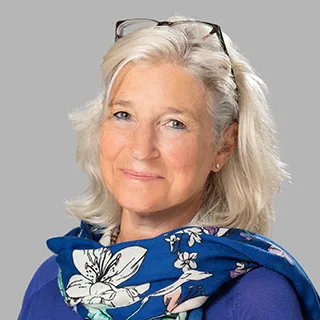
Dr Alison McLeod - Technology Scotland
Alison has nearly 20 years of experience working in academic, industrial and consultancy roles. After achieving her PhD in Photonics she worked as a Research Associate before leaving academia and joining industry in the role of technical sales/account manager in the health physics and photonics sectors.
Alison then moved to a role dedicated to project management and proposal writing for EU funded projects, gaining extensive experience across a wide variety of research topics.
Alison is Technology Scotland's Senior Programme Manager for Photonics. She is responsible for the Photonics Scotland network: connecting members with the support they need, fostering cross-collaboration, representing the interests of the sector to Government as well as planning and running specific events and activities for the Photonics Scotland network.
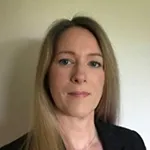
Dr Paola Iovanna - Ericsson
Paola Iovanna is Principal Research at Ericsson. She is driving research activities on transport network and orchestration solutions for mobile networks for 5G-beyond and 6G.
In this framework she led/leading joint activity with Customer including the realization of prototype and demonstration. She has been working with different levels of responsibility in different EU projects and Network of Excellence.
She is author of 70 patents and more than 90 publications on IEEE journal, magazine and conferences.
Panel Chair
Dr Jess Wade - Imperial College London
Sponsored by
IEEE Women in Photonics
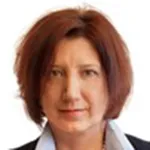
Platinum sponsor
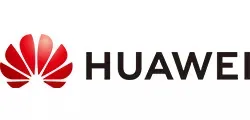
Huawei
Founded in 1987, Huawei is a leading global provider of information and communications technology (ICT) infrastructure and smart devices. We have 207,000 employees and operate in over 170 countries and regions, serving more than three billion people around the world. We are committed to bringing digital to every person, home and organization for a fully connected, intelligent world.
